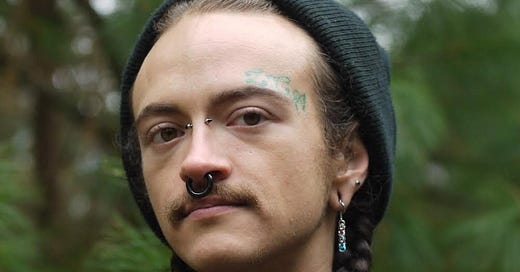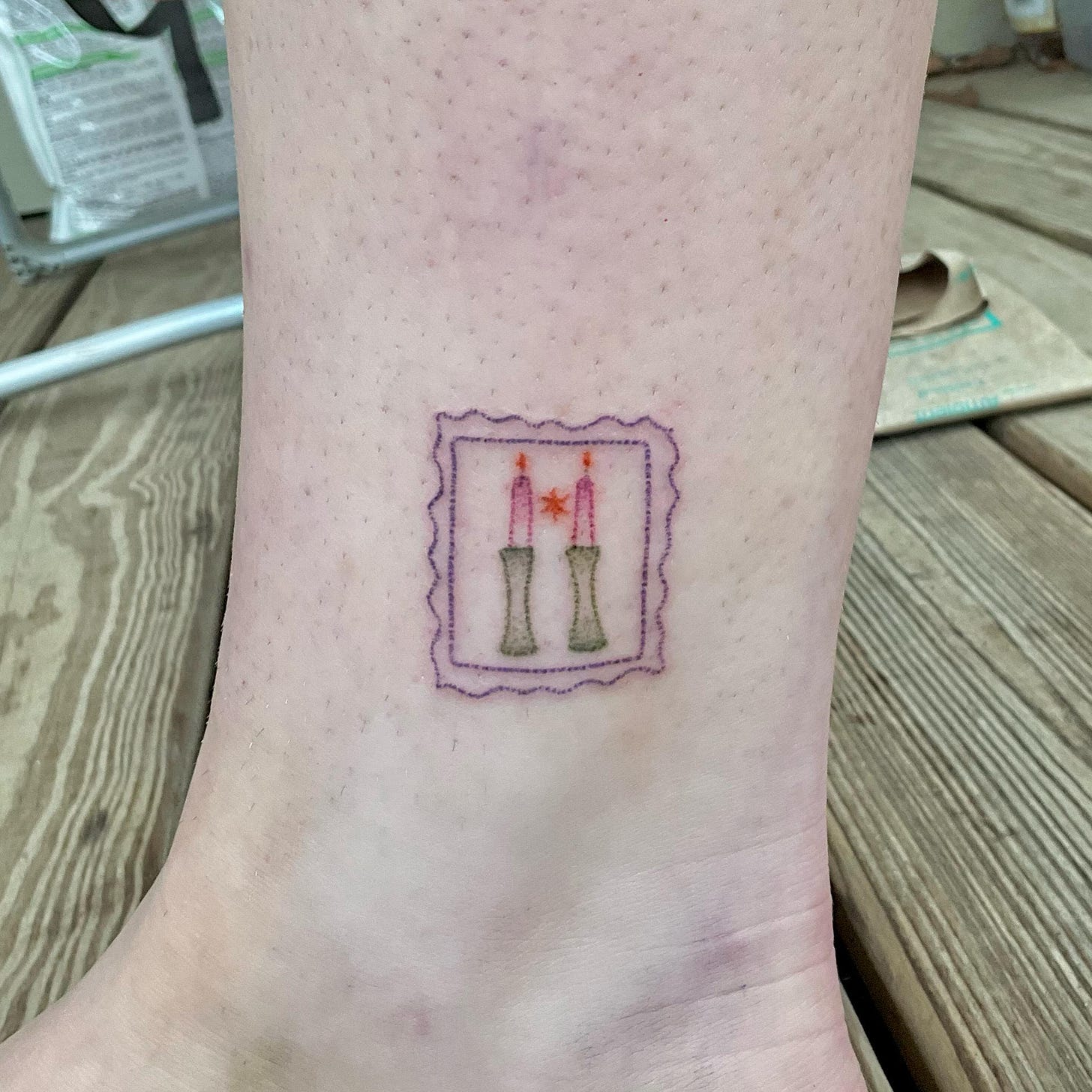Meet a Jewish, queer, homesteading tattoo artist
Tahini is part of an emerging community of modern, Jewish tattoo artists
If you have a preconceived idea of what a Jew is, it’s probably not the tattoo artist known as Tahini, that is, a nonbinary, queer Jewish farmer and homesteader living off-grid near the Canadian border.
If being a Jewish tattoo artist, or a queer Jewish homesteader, or all of the above simultaneously doesn’t seem to make immediate sense, Tahini believes that being Jewish itself doesn’t make sense. For some people, the two things are “very strongly” contradictory, but not for Tahini.
“There's all these different debates,” they said. “People have really strong, complicated feelings about it that are very important that I think are valid, because that's what it's like to be Jewish. I understand that some people interpret this in a way that it's totally different for me.”
Originally from outside of Philadelphia, Tahini grew up in a reform Jewish household. They went to Jewish day school and so had a Jewish identity but not necessarily a religious upbringing.
“Growing up, my parents were so against tattoos, like super opposed to them and, there was never like -- I think this is very Jewish -- it was never explicitly ‘because we are Jewish,’ but it was always just extremely not okay, in the way that a Jewish family would be about having tattoos,” Tahini said. “My parents were totally like, ‘Oh, we won't pay for you to go to college if you get tattooed, we'll cut you off. So as soon as I moved out, I got my first tattoo.”
Tahini also identifies as an artist, but their art very quickly veered into the spiritual. They don’t use tattoo machines, relying instead on the ancient method of hand-poked tattooing, which they said itself has a spiritual component.
“I'm one of the only Jewish tattooers in this country, in the U.S., who does that,” they said. “Because I do so much of this spiritually focused work, a lot of people are coming to get something that has a lot of meaning, and they're looking for an experience that is very intentional.”
In the beginning, Tahini’s tattoos were not all Jewish in theme, though that emerged early in their career. But as a Jewish artist and a psychology student, they began having deep conversations with their clients about the experience itself and that spiritual component continued to grow.
“When I was thinking about who I wanted to be as a tattooer from the very beginning, knowing because I'm so antisocial, I was like, I'm cultivating experience for me and another person, and so who do I want as my clients,” they said. “Also, what is meaningful to me, what's meaningful to create in the world, to put on someone that will be permanent and immediately I was like, ‘I want to make art that is queer, and I want to make art that is Jewish.’”
Over time, Tahini has become part of a “budding community” of people with whom they share ideals and ideas, a small core group of Jewish, queer tattoo artists.
“‘Community’ is not the word I would use to describe it,” they said. “There's a very small network of people who are loosely, socially connected together through Instagram.”
It’s not a network they knew existed, but it’s a network that has become increasingly aware of each other’s similarities.
“I travel so much, so naturally, I just developed relationships with the Jewish tattoo community,” Tahini said. “Every single person who I've been interacting with has also been queer, and I didn't always know that until I met them. One of my friends in New York City, I didn't realize that he was queer until we met in real life, because his thing is just being Jewish online. So I was like, ‘Oh, you're also gay.’”






